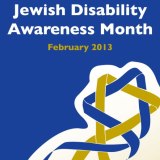
“For if you altogether hold your peace at this time, then will relief and deliverance arise to the Jews from another place, but you and your father’s house will perish; and who knows whether you did not come to royal estate for such a time as this?” Esther 4:14
This weekend is one of my favorite holidays of the Jewish calendar – Purim. I like the costumes, the carnivals, the gift-giving. But the story of Purim is, like many of our holidays, filled with darker and more thoughtful elements. The most striking and provocative idea to me is encapsulated in Esther 4:14, where Mordechai tells Esther that no matter what she does, the Jews will in fact be fine; yet, he continues, maybe your whole life up to this point was in fact leading up to this very moment and this very purpose.
There are certainly some contradictory ideas in this passage – but on the whole, it seems to present an interesting idea of responsibility that can be translated to a lot of the Reform Movement’s social justice work. It takes a lot of the pressure off by instilling in us some humility – we are not the “be all and end” all of social change, and it is entirely possible that the universe’s arc will continue to bend toward justice even without our help. At the same time, though, we have an important and even perhaps divinely pre-ordained role to play in the process.
Such reasoning can be applied to the current debate over stem cell research and its funding. This is an issue that the RAC works tirelessly on – and is one that L’Taken participants have lobbied on week after week this winter. Our arguments are based on science – stem cell research could reveal treatments or cures for illness ranging from Alzheimer’s disease to Parkinson’s to diabetes; they’re based on public support – according to an August 2012 poll, two thirds of Americans want Congress to ensure federal funding for embryonic stem cell research; and they’re based on our Jewish values – “Jewish text holds that human beings are charged with doing everything possible to save another person’s life. Our tradition requires that we utilize all of our knowledge and abilities in order to heal the sick. ‘When one delays in doing so, it is as if he has shed blood’” (Shulchan Arukh Yore De’ah 336:1).
In addition to Purim, this month is Jewish Disability Awareness Month, providing us with an opportunity to examine how we as a community provide support and resources for those among us with physical disabilities or illnesses. Yet support in this context doesn’t just have to mean wheelchair accessible entrances and Braille siddurim (although those are important!). It also means providing the political and economic support that could lead to medical solutions and cures to some of the ailments that lead to physical handicaps. And who knows – maybe we came to work at the RAC for such an issue as this?
